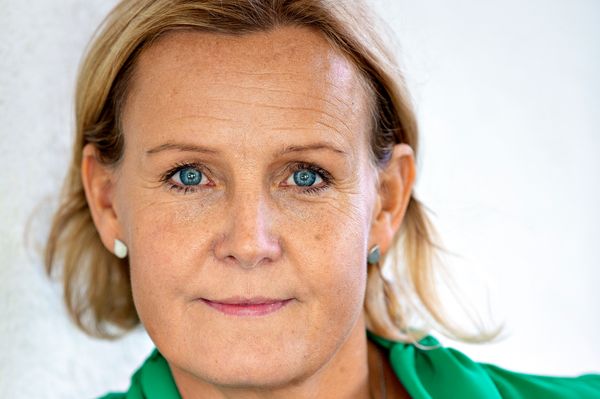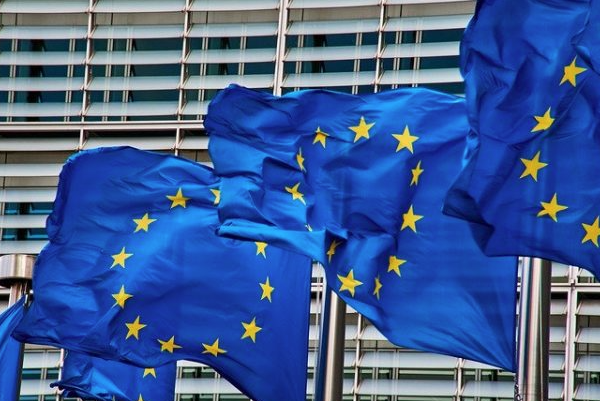
Your Voice: Using Facebook for fundraising
May 6, 2020
EU Covid-19 measures: Where does philanthropy fit in?
June 3, 2020In the midst of a global pandemic, what can fundraisers do to overcome the barriers for giving among the wealthy? Dan Grishin, programme coordinator at The Beacon Collaborative, explores new research into high level donor groups and considers what fundraising approaches could be most effective in inspiring them to give.
A report by The Beacon Collaborative and the Institute of Fundraising has found that new fundraising approaches might help increase levels of giving in the UK, even during these times of national and international emergency. While existing fundraising techniques work well for just over half the wealthy population, the reports indicates that new approaches are needed to unlock wider wealth.
‘The Giving Experience: Overcoming the barriers to giving among the wealthy in the UK’ reflects on donors’ experiences and perceptions of fundraising organisations. The study focuses on barriers and motivations for giving and the nature of relationships wealthy people want with the non-profit organisations they support.
Working with specialist consultancy Cultural Dynamics Strategy & Marketing, the research used a behavioural profiling model based on Maslow’s hierarchy of need and identifies three strong behavioural groupings: Settlers, Prospectors and Pioneers.
Current approaches to fundraising are most effective for Prospectors, but less effective for the other profiles. Thus, new approaches are needed to unlock giving among the other 48% of wealthy individuals.
The report concludes that a better understanding of donor motivations would enable more effective partnerships between non-profit organisations and their wealthy supporters through prospecting and stewardship.
![]()
Prospector behaviour to support COVID-19
Let us take Prospectors, who are the group that fundraisers will already be most familiar with. Prospectors are driven by a need for esteem: both self-esteem and the esteem of others. This results in a focus on achievement and success. They welcome opportunities to show what they can do and value the financial reward and recognition that comes from their achievements.
Prospectors account for more than half of the wealthy population in the UK, making them the largest behavioural group.
It is important to note that precisely because their self-worth is so closely tied in with their success, that this group also has high levels of anxiety about losing their wealth and status. It is this fear factor that is often not fully understood by fundraisers and will have a direct impact on their giving behaviour during this crisis.
Many Prospectors will want to contribute to the wider COVID-19 effort. However, they will be particularly fearful of losing money due to financial market volatility and business pressures. They will also be fearful about making donations to organisations that may fail through the crisis.
Some active philanthropists in this group will charge in to support the effort, but many more are likely to delay funding decisions. They are also likely to focus their funding on the organisations they trust most.
Prospectors who are less philanthropically engaged, are likely to follow the herd and donate to well-known organisations.
The key message for fundraisers is to keep in contact with your Prospector donors. Do not expect an immediate donation but stay on their radar and let them know that you value their support. The personal touch will pay dividends when they are ready to make a financial commitment.
Pioneer behaviour to support COVID-19
Pioneers are the second largest behavioural group among the UK’s wealthy population. They are driven to satisfy the needs of personal fulfilment or ‘self-actualisation’ to use the term coined by Maslow. They account for one-third of the wealthy population in the UK.
They tend to focus on the big picture and like to connect the dots to build a vision. This means they are more likely to seek out organisations that demonstrate a strategic response to the pandemic. They are often less anxious about money and so are more likely to commit funding now, so long as they believe the organisations they fund will make a difference.
However, in general, Pioneers are not comfortable with a direct approach from a fundraiser.
Instead, organisations that have developed an evidence-base for their strategy during the crisis are likely to be in a strong position for this group, as well as those that have insights into what is happening across the wider landscape.
This group also has a particularly strong focus on impact and reporting. Fundraisers need to be aware of this and, in current circumstances, they will need to manage expectations that reporting will be difficult in the months ahead.
Also, keep in mind that Pioneers are the group most likely to be looking ahead to the long-term recovery and rebuild phases, so the relationships are worth cultivating for the long-term.
Settler behaviour to support COVID-19
Lastly, Settlers are the group that focuses most on safety and security. Home, family and friends tend to be at the centre of their lives. They are security conscious and naturally conservative, tending to favour tradition and structure over innovation and new ways of doing things.
They are the smallest group accounting for just 15% of the wealthy population in the UK.
Through the COVID-19 crisis we can expect their first instinct will be to secure the safety of their families. Once achieved, their attention will tune in to the security of their wider community and the national emergency.
They are most likely to give to appeals that support the national response and those on the frontline.
What practical measures can fundraisers employ?
In this crisis, how quickly each group responds and how much they give to good causes will be directly linked to how well they can overcome their fears. Indeed, in the coming weeks and months we can expect wealthy individuals to give in ways they have not given before. For many, this crisis might even spark their first engagement with charitable giving.
As a first step toward managing their anxieties, fundraisers need to encourage wealthy donors to give to the COVID-19 effort at the level at which they feel comfortable. They should maintain regular contact and provide transparent information flows about the organisation’s work, its challenges and resilience to help donors make informed choices about increasing their levels of commitment.
Personal contact is particularly important for Prospector donors. Their high anxiety levels mean they will need regular encouragement that their support is valued.
Pioneers are information-hungry and want to know more about how their money is being spent and its tangible impact. They are more likely to stay engaged if the organisation can provide them with updates on how its work is contributing to the larger effort.
Meanwhile, Settlers will be seeking to manage their funding risks and will be looking for signs that the situation is returning to normal.
Getting these relationships right from the start is more important than ever and fundraisers will play a vital role in providing information and insight into the work of their organisations through these challenging time. Their goal should be to build strong, long-term partnerships that bring in wealthy donors as partners and encourage them to support their organisations to survive, adapt and face the future.

Dan Grishin, The Beacon Collaborative
Dan Grishin
Dan Grishin is programme coordinator at The Beacon Collaborative, assisting with the running of Beacon’s philanthropy projects and communications. He has previously worked as a Grants Manager in the Cabinet Office and a Policy Advisor in Downing Street, alongside multiple roles within the not-for-profit sector. The Beacon Collaborative is a collective impact movement bringing together philanthropists, organisations and foundations that share a common aspiration to increase philanthropy and social investment among the wealthy in the UK.




